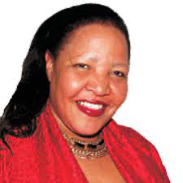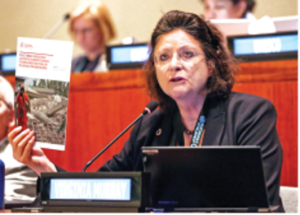This is the ninth in the series of short statements from candidates in the coming CODATA Elections at the General Assembly to be held on 15-16 November, 2021. Tyng-Ruey Chuang is a candidate for the CODATA Executive Committee as an Ordinary Member. He was nominated by the Academy of Sciences located in Taipei.
 I, Tyng-Ruey Chuang, was elected to the CODATA Executive Committee as an Ordinary Member in November 2018. For the three years since I was elected, I have had the privilege and pleasure working with colleagues in the CODATA Executive Committee and Secretariat, the CODATA members, and various data communities in advocating greater data sharing and reuse to further scientific advancement. The data landscape in today’s society is changing fast: Datasets from diverse sources — sciences, governments, businesses, citizens, etc. — are being used together to address pressing environmental and societal issues. As a society, we cannot, however, at this stage proclaim that all useful datasets are easily accessible and reusable to all people to freely build upon to benefit all our communities.
I, Tyng-Ruey Chuang, was elected to the CODATA Executive Committee as an Ordinary Member in November 2018. For the three years since I was elected, I have had the privilege and pleasure working with colleagues in the CODATA Executive Committee and Secretariat, the CODATA members, and various data communities in advocating greater data sharing and reuse to further scientific advancement. The data landscape in today’s society is changing fast: Datasets from diverse sources — sciences, governments, businesses, citizens, etc. — are being used together to address pressing environmental and societal issues. As a society, we cannot, however, at this stage proclaim that all useful datasets are easily accessible and reusable to all people to freely build upon to benefit all our communities.
CODATA, as a multidisciplinary scientific body working with (and within) the International Science Council, is at a unique position to make strides in realizing the data for social goods vision. To work toward this vision, CODATA would need to connect more to social sciences and humanities research associations, as well as to global civil society organizations and intergovernmental organizations. With clear visions and common goals, CODATA and like-mind global partners can achieve a lot more and a lot faster.
For the last 20 years I have worked with researchers from multiple disciplines on data management systems, copyrights and public licenses, open data policies, data repositories, among others. Many of these works are collaborative data projects. A central goal of these collaborations, always, is to make better use of research data. My training and experience in information science and engineering aligns strongly with the CODATA missions.
I collaborated with the Taiwan Endemic Species Research Institute on a communal data workflow for the Taiwan Roadkill Observation Network [1, 2]. The projects received a National Agricultural Science Award in 2019 [3]. Our work on the Sunflower Movement Archive [4] has contributed to a year-long special exhibition at National Museum of Taiwan History on Social Movements in Post-War Taiwan [5]. Both collaborations emphasize community involvement and public access to research materials. We build and operate the depositar [6], a data repository open to all for the deposit, discovery, and reuse of research datasets. We organized the 2021 Research Data Management Workshop with about 200 online participants [7].
I had been the public lead of Creative Commons Taiwan since its beginning in early 2003 until its transition to a community project in June 2018. I co-led the Open Source Software Foundry (2003 — 2017). These two long-running projects were supported by Academia Sinica in Taipei to outreach to the general public, researchers, and policy makers in Taiwan about the principles and practices of public licenses and free software. Capacity building is an integral part of the two projects.
In addition to being a member of the CODATA Executive Committee (2018 — 2021), I served in CODATA’s International Data Policy Committee (2014 — 2019) and co-chaired the CODATA–WDS Task Group on Citizen Science and the Validation, Curation, and Management of Crowdsourced Data (2016 — 2018). I am a member of CODATA Taiwan, and once served as its executive secretary (2007 — 2013). I have participated in CODATA General Assembly since 2008, and have organized sessions in the 2010 and 2012 CODATA International Conference, and in the 2014, 2016, 2018, 2021 SciDataCon Conference. The 2012 CODATA International Conference was held in Taipei; I led a team in Taiwan working with the CODATA Secretariat to organize the conference to a great success.
I am an Associate Research Professor (Associate Research Fellow) at the Institute of Information Science, Academia Sinica, Taipei, with a joint appointment at both the Research Center for Information Technology Innovation and the Research Center for Humanities and Social Sciences. I was a fellow at the Berkman Center for Internet and Society, Harvard University, supported in part by a Fulbright senior research grant (2011 — 2012).
I am on the Advisory Committee of Academia Historia, Taiwan. I am also part of Future Earth Taipei. I was on the Creative Commons’ Policy Advisory Council (2016 — 2018). For several times, I served on the board of the Taiwan Association of Human Rights, as well as on the board of the Software Liberty Association of Taiwan. As a reference, you can also find my Candidacy Statement for the 2018 CODATA Executive Committee at the CODATA website [8].
[1] <https://roadkill.tw/en>
[2] <https://roadkill.tw/sites/roadkill/files/content/communal_data_workflow_in_tairon.pdf>
[3] <https://roadkill.tw/news/20200103>
[4] <http://public.318.io/about>
[5] <https://www.nmth.gov.tw/exhibition?uid=127&pid=515>
[6] <https://data.depositar.io/en/about>
[7] <http://odw.tw/2021/programme>
[8 ] <https://codata.org/blog/2018/10/17/tyng-ruey-chuang-candidacy-for-codata-executive-committe
 My experience in research computing has included developing infrastructures including distributed storage at scale, and private and hybrid cloud environments, as well as leading or serving on research teams in the Geosciences, Life Sciences, and Social Sciences domains. I remember the moment that I became a data person: I was working with a group of research staff to test an event detection algorithm against a social media dataset. The results were promising, and we wanted to try it against similar datasets to measure improvement in the accuracy of the algorithm. We requested from a close collaborator the data associated with a recent paper and were told that the data was lost – and worse, the researcher was not that concerned as they had already published the paper.
My experience in research computing has included developing infrastructures including distributed storage at scale, and private and hybrid cloud environments, as well as leading or serving on research teams in the Geosciences, Life Sciences, and Social Sciences domains. I remember the moment that I became a data person: I was working with a group of research staff to test an event detection algorithm against a social media dataset. The results were promising, and we wanted to try it against similar datasets to measure improvement in the accuracy of the algorithm. We requested from a close collaborator the data associated with a recent paper and were told that the data was lost – and worse, the researcher was not that concerned as they had already published the paper. 








 Professor Richard Hartshorn, Secretary General of the International Union of Pure and Applied Chemistry (IUPAC) will continue to be an excellent member of the CODATA Executive Committee, should he be re-elected. In his role as Secretary General, and through others within IUPAC, he has demonstrated strategic leadership and gained significant experience in governance of an international science-based organization. This experience has been brought to bear as a member of the CODATA Executive Committee, particularly through providing a scientific union perspective to committee deliberations.
Professor Richard Hartshorn, Secretary General of the International Union of Pure and Applied Chemistry (IUPAC) will continue to be an excellent member of the CODATA Executive Committee, should he be re-elected. In his role as Secretary General, and through others within IUPAC, he has demonstrated strategic leadership and gained significant experience in governance of an international science-based organization. This experience has been brought to bear as a member of the CODATA Executive Committee, particularly through providing a scientific union perspective to committee deliberations.